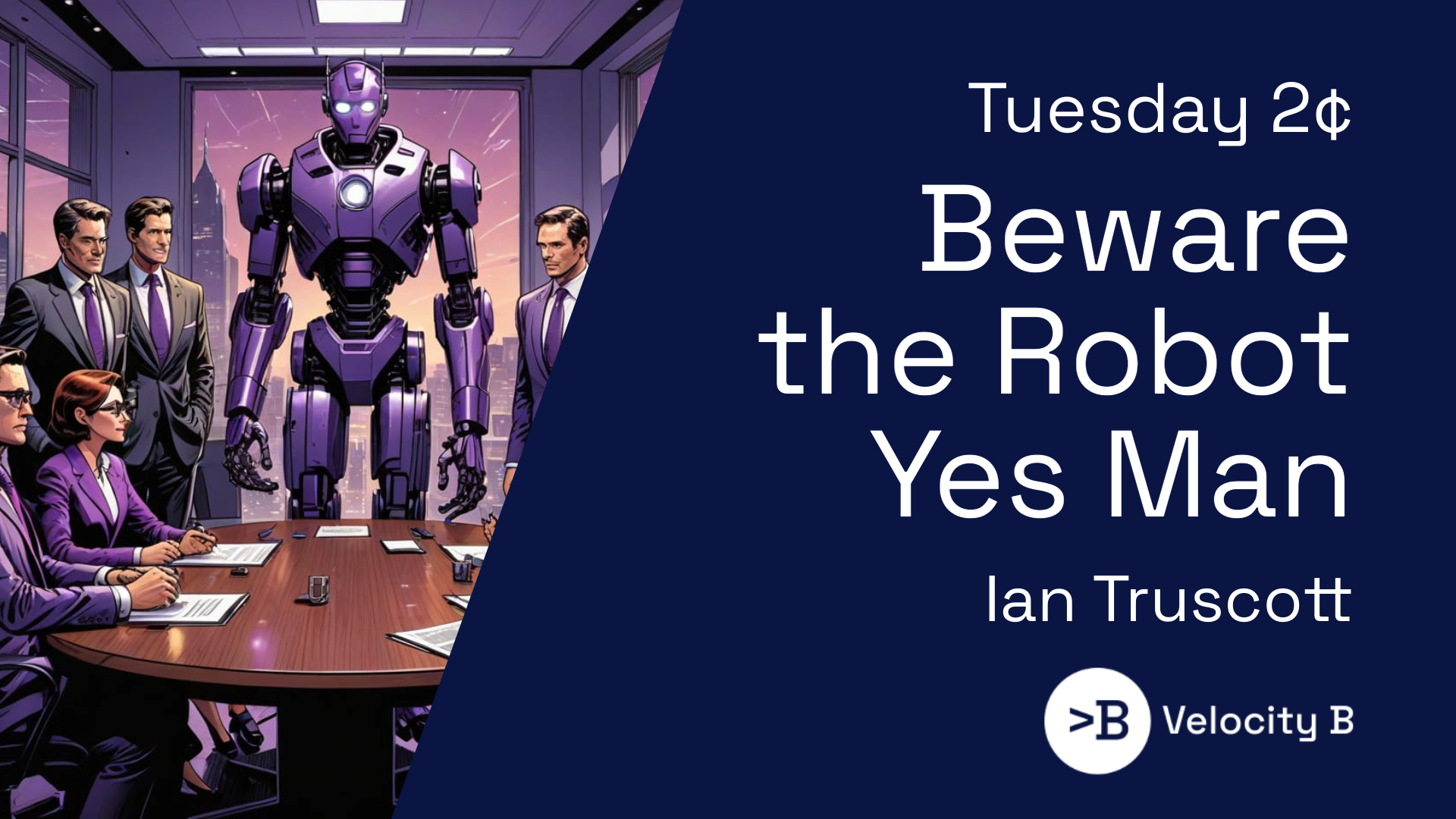Beware the Robot Yes Man
There’s a new voice in the C-suite, the Robot Yes Man.

I was chatting with a senior sales leader the other day, who shared that his CEO was a heavy user of ChatGPT and would refer to it often when making decisions, preparing for meetings, and forming his opinion on sales.
I don’t have any data on this, but it seems plausible that this is now typical and that we are all adjusting to dealing with a third voice in the room, from C-Suite conversations down.
And it’s a voice that is not critical or going to challenge an opinion.
If you’ve used ChatGPT, for example, it’s wonderful for the ego, convincing you that every idea you have is awesome or will describe the best way of doing a thing, never telling you that doing that thing is a bloody terrible idea.
And from its big giant head, this Robot Yes Man can share data, quotes, and research that supports this hypothesis, however ridiculous it is, without (unless you ask for it) any suggestion of the downside or quoting the contrary research that reveals that this cause of action led to the fiery death of a much-loved brand or poisoned the local water supply.
It’s like the colleague or friend we’ve known who will Google until they find something, however tenuous that supports a point of view, but our Robot Yes Man does it in seconds and will have dredged the interwebs for 15 examples.
The phrase of our times, that we are probably all tired of hearing, “You won’t lose your job to AI, you will lose your job to someone using AI”, probably needs a tweak, as we won’t lose our jobs to AI; we’ll be fired by someone using AI.
That sounds a bit grim, sorry, but I think we have to lean into this idea, as, of course, the advice we all get from the Robot Yes Man is only as good as the data we give it and how we ask the question.
I suspect, as I’ve written before about how outsourcing your writing to generative AI, you rob yourself of the journey of enlightenment and growth that writing anything takes you on, it’s similar with letting ChatGPT make your decisions, and leaders who learn to challenge their Robot Yes Man will make better, braver decisions than those who let it flatter them.
If the boss, colleague, investor, or whoever, has their Robot Yes Man whispering sweet nothings into their ear, then we need to think about the right questions that should be being asked and challenge - what does your Robot Yes Man say about this? Asking the right questions matters more than having all the answers.
And when we prep for that meeting, sitting with our Robot Yes Man, we need to be disciplined, ensure we don’t get carried away with the ego pleasing “Perfect — that’s exactly the right instinct, Ian” (yes, I just cut and pasted that from a chat with ChatGPT) and try to drive it to say no, to uncover why not.
Maybe what we need most in the age of the Robot Yes Man are the human No Men (and women). The colleagues who’ll tell us - “WTF - That’s exactly the wrong instinct Ian”
That’s my thought for this week, and apparently “that’s a cracking Tuesday 2¢, Ian”.